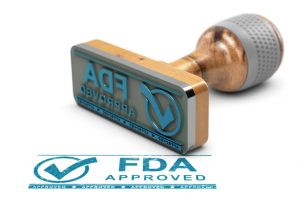With five US FDA approvals over the past 15 months, MilliporeSigma says it is confident that antibody-drug conjugates (ADCs) will continue to be a driver of new therapeutics for years to come. A $65 million expansion in Wisconsin aims to exploit this.
The Madison, Wisconsin expansion will bring MilliporeSigma’s contract manufacturing wing large-scale manufacturing capacity for high-potent active pharmaceutical ingredients (HPAPIs). The 70,000 square-foot facility will be designed to handle single-digit nanogram occupational exposure limit materials and will incorporate containment areas to produce linker and payload materials for ADCs.
“MilliporeSigma has been working in the field of conjugation for more than three decades, and specifically performing potent ADC conjugations for well over a decade,” Andrew Bulpin, head of Process Solutions at MilliporeSigma told Bioprocess Insider. In 2015, the firm bolstred its presence in the modality through the $17 billion acquisition of Sigma-Aldrich.

Image: iStock/Olivier Le Moal
“We have experience in numerous different ADC constructs and are a provider of single-use technology to customers transitioning from a historical reliance on dedicated and/or multi-use equipment.”
ADC space
The first ADC, Wyeth and partner Celltech’s Mylotarg (gemtuzumab ozogamicin), was first approved in 2000 for acute myeloid leukemia (AML). The product was pulled from the market in 2010, but in 2017 Marketing Authority Holder Pfizer successfully sought re-approval.
But even with the ebbs and flows of Mylotarg, there are only eight other ADCs commercially available. (See table below).
However, MilliporeSigma remains “very confident that ADCs and the wider bioconjugate technologies will continue to be a significant driver of new therapeutic development for years to come,” Bulpin said.
“There have been five new ADCs approved by the FDA within the past 12 months, and new therapeutic development rarely follows a straight-line/linear pathway. Historical questions about commercial viability have thinned significantly. Many second- and third- generation technologies are entering and moving through the developmental pipeline, including a wider array of targeted indications.”
Of the nine marketed ADCs, MilliporeSigma claims to be involved in the production process of seven of them, though Bulpin was unable to disclose the customers it works with.
While Madison produces linker and payload materials, the firm’s St. Louis, Missouri facility performs downstream conjugation and “was recently approved by the FDA as a commercial conjugation supplier.”
CDMO business
While this $65 million expansion is driven by direct demand for ADC and HPAPI capacity, Bulpin added it is representative of a wider strategy of investment in its contract manufacturing business.
“Certainly, our ADC business is a significant driver of this expansion but, overall, we are investing wholly in the CMO business to meet the demands of our current and future customer base in multiple technology areas.”
In April, the firm invested $110 million into its gene therapy manufacturing services business, building a second facility at its gene therapy site in California, adding 11 production suites and more than doubling its viral vector capacity.
Furthermore, the firm recently consolidated its contract manufacturing organization (CMO) BioReliance services offering, including manufacturing services in viral vectors, monoclonal antibodies, ADCs [antibody-drug conjugates] as well as testing, cell banking and clearance services.
ADC Approvals
| Drug | Maker | Condition | Trade name | FDA approval date | |
| Gemtuzumab ozogamicin | Pfizer/Wyeth | relapsed acute myelogenous leukemia (AML) | Mylotarg | Sep 2017
(Originally 2000, withdrawn 2010) |
|
| Brentuximab vedotin | Seattle Genetics, Millennium/Takeda | relapsed HL and relapsed sALCL | Adcetris | Aug 2011 | |
| Trastuzumab emtansine | Genentech, Roche | HER2-positive metastatic breast cancer (mBC) following treatment with trastuzumab and a maytansinoid | Kadcyla | Feb 2013 | |
| Inotuzumab ozogamicin | Pfizer/Wyeth | relapsed or refractory CD22-positive B-cell precursor acute lymphoblastic leukemia | Besponsa | Aug 2017 | |
| Polatuzumab vedotin-piiq | Genentech, Roche | relapsed or refractory (R/R) diffuse large B-cell lymphoma (DLBCL) | Polivy | June 2019 | |
| Enfortumab vedotin | Astellas/Seattle Genetics | adult patients with locally advanced or metastatic urothelial cancer who have received a PD-1 or PD-L1 inhibitor, and a Pt-containing therapy | Padcev | Dec 2019 | |
| Trastuzumab deruxtecan | AstraZeneca/Daiichi Sankyo | adult patients with unresectable or metastatic HER2-positive breast cancer who have received two or more prior anti-HER2 based regimens | Enhertu | Dec 2019 | |
| Sacituzumab govitecan | Immunomedics | adult patients with metastatic triple-negative breast cancer (mTNBC) who have received at least two prior therapies for patients with relapsed or refractory metastatic disease | Trodelvy | Apr 2020 | |
| Belantamab mafodotin | GlaxoSmithKline | multiple myeloma patients whose disease has progressed despite prior treatment with an immunomodulatory agent, proteasome inhibitor and anti-CD38 antibody | Blenrep | Aug 2020 |
